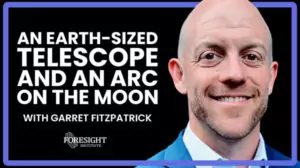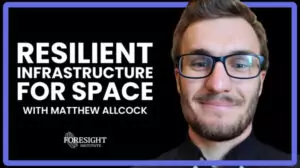Space
Supporting researchers, entrepreneurs, and funders in advancing progress in space development, from near-term applications to long-term exploration.

Seminar Group
Our online seminars feature experts sharing cutting-edge research and recent developments, in a small, focused setting.
Foresight Fellowship
Apply
The Foresight Fellowship is a one-year program supporting early-career scientists, engineers, and innovators to supercharge their ability to advance technological progress.
Fellows
Our brilliant space Fellows are early-career scientists, engineers, and innovators advancing the frontier of the field.













